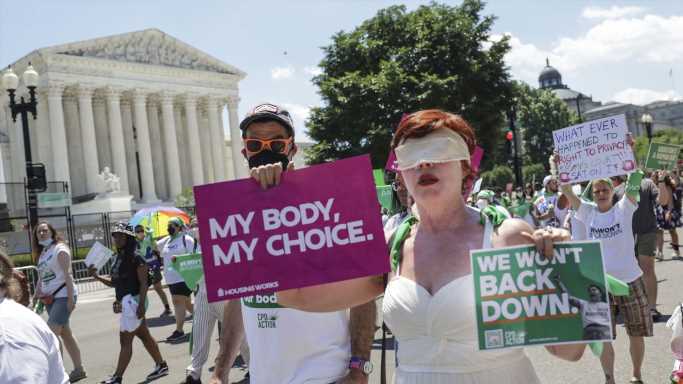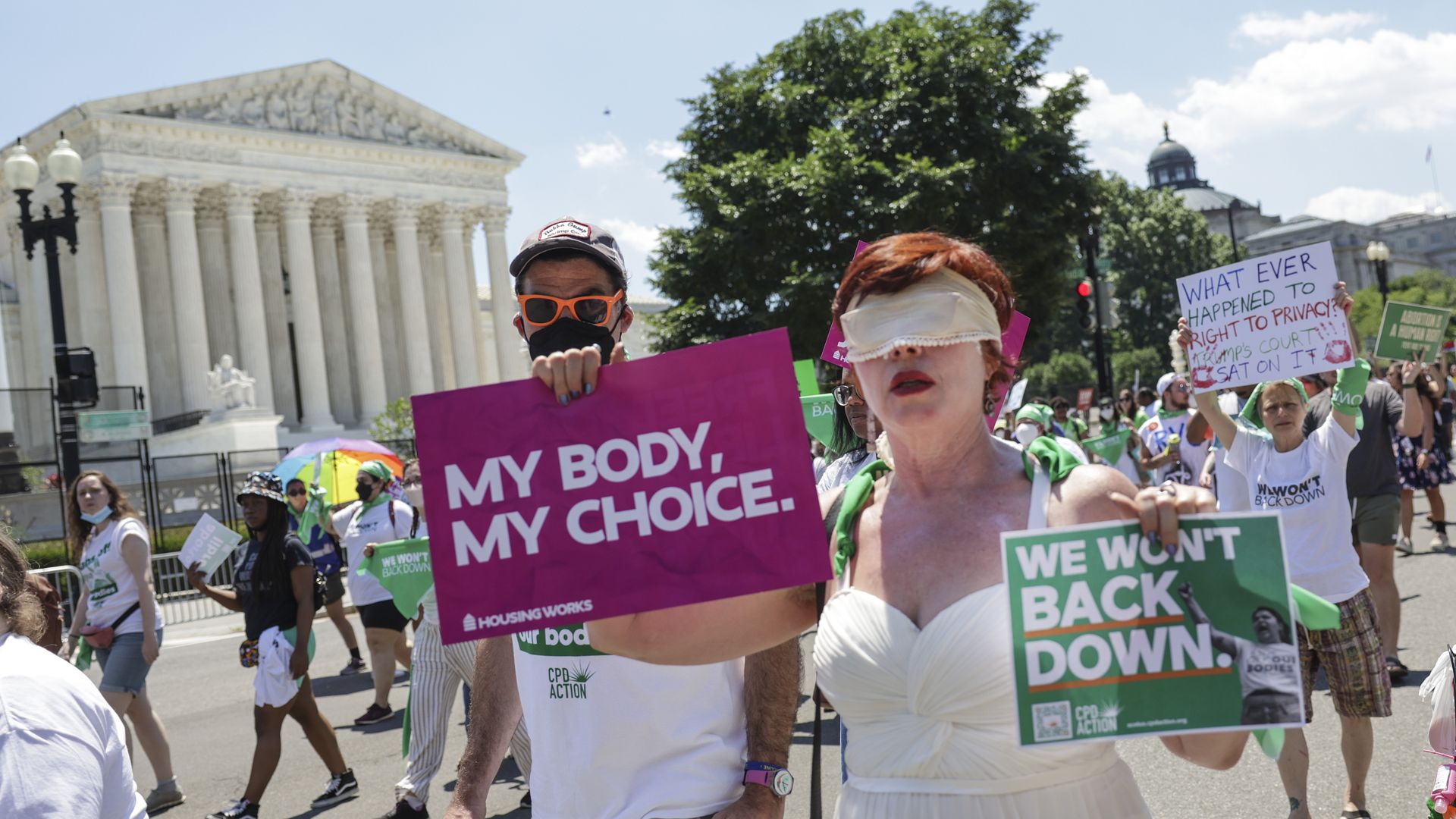Abortion-rights activists protest outside the U.S. Supreme Court on the last day of their term on June 30. Photo: Kevin Dietsch/Getty Images
Abortion providers on Friday filed a lawsuit directly with the Oklahoma Supreme Court to challenge two abortion bans in the state.
Driving the news: Nearly all abortions have been unavailable in Oklahoma since late May, when Gov. Kevin Stitt (R) signed into law a bill banning abortion that is enforced by lawsuits from private citizens.
- In early May, the governor signed a bill that bans abortion past the sixth week of pregnancy and is also enforced by private civil action. Both lawsuit-enforced bans are being challenged in court.
- Oklahoma also has a "trigger" law that took effect shortly after Roe's fall.
Details: The lawsuit challenges a 1910 pre-Roe total abortion ban that was reinstated by the state's attorney general after the Supreme Court overturned Roe v. Wade, and a law enacted earlier this year that makes performing an abortion a felony punishable by up to 10 years in prison.
- The plaintiffs in the case argue that both bans violate "the strong protection for individual liberty in the Oklahoma Constitution."
- They also say that the 1910 law was declared unconstitutional in 1973, when Roe was first decided.
What they're saying: "For over a month, Oklahomans have been completely deprived of abortion access, and they cannot wait one moment more," said Alexis McGill Johnson, president and CEO of Planned Parenthood Federation of America, which filed the lawsuit.
- "Today, we are asking this court not only to quickly block the state’s cruel abortion bans, but to do its job and protect the people of Oklahoma. Already, thousands of Oklahomans have been forced to either find a way to get out of state for essential care or carry a pregnancy to term — bearing the serious risks that come with it."
Go deeper: Nearly all abortions are illegal in 9 states but more bans are coming
Editor's note: This post has been corrected to reflect that the bill that is enforced by lawsuits from private citizens was signed in May (not April). (edited)
Source: Read Full Article
-
Furious Tory MPs call for BBC licence fee to be scrapped
-
Denver to sweep large homeless encampment, offer residents hotel rooms
-
Trio of Democratic lawmakers emerges to defend TikTok in Congress
-
Brexit LIVE: Von der Leyen hands Irish fishermen major lifeline with €80m package
-
Small boat crossings in English Channel hit record despite Sunak hailing fall


